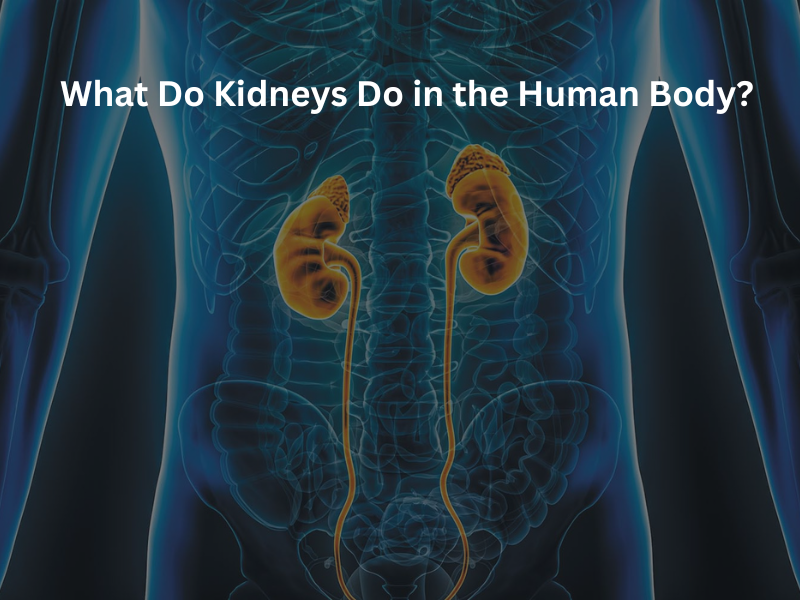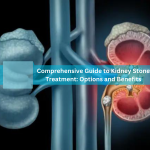Our kidneys are incredible organs that play a crucial role in keeping our bodies healthy. Despite their small size, they perform many important tasks. In this blog post, we will explore the functions of the kidneys in simple and easy-to-understand language.
Introduction to the Kidneys
What Are Kidneys?
Kidneys are two bean-shaped organs located in your lower back, just below the rib cage. Each kidney is about the size of a fist. They work around the clock to filter your blood and keep your body in balance.
Why Are Kidneys Important?
Kidneys are essential for removing waste and extra fluid from your body. They also help in several other vital functions, such as balancing minerals and producing hormones. Without well-functioning kidneys, your body would struggle to maintain these crucial processes.
Functions of the Kidneys
Filtering Waste and Toxins
The primary job of the kidneys is to filter waste and toxins from the blood. Every day, your kidneys filter about 150 quarts of blood, removing waste products and extra water. This waste and water are turned into urine, which is then excreted from the body.
Balancing Fluids and Electrolytes
Kidneys help balance the amount of fluids in your body. They ensure that you have the right amount of water, sodium, potassium, and other electrolytes. This balance is crucial for many bodily functions, including nerve and muscle function.
Regulating Blood Pressure
Kidneys produce a hormone called renin, which helps regulate blood pressure. When your blood pressure is too low, the kidneys release renin to help increase it. This ensures that your organs receive a steady supply of oxygen and nutrients.
Producing Red Blood Cells
Another important hormone produced by the kidneys is erythropoietin. This hormone stimulates the production of red blood cells in the bone marrow. Red blood cells are essential for carrying oxygen throughout your body.
Maintaining Bone Health
Kidneys also play a role in keeping your bones healthy. They convert vitamin D into its active form, which helps your body absorb calcium. Calcium is necessary for strong bones and teeth.
How to Keep Your Kidneys Healthy
Stay Hydrated
Drinking plenty of water is one of the best ways to keep your kidneys healthy. Water helps the kidneys filter waste and toxins from the blood and prevents the formation of kidney stones.
Eat a Balanced Diet
A healthy diet supports kidney function. Include plenty of fruits, vegetables, whole grains, and lean proteins in your meals. Avoid excessive salt, sugar, and processed foods, which can strain your kidneys.
Monitor Blood Pressure and Blood Sugar
High blood pressure and diabetes are leading causes of kidney disease. Regularly check your blood pressure and blood sugar levels, and work with your doctor to keep them under control.
Establish a Sleep Routine
Create a consistent sleep schedule by going to bed and waking up at the same time each day. Establish a relaxing bedtime routine, such as reading or taking a warm bath, to help signal your body that it’s time to sleep.
Avoid Smoking and Limit Alcohol
Smoking and excessive alcohol consumption can damage your kidneys. If you smoke, seek help to quit. Limit your alcohol intake to prevent kidney stress and maintain overall health.
Exercise Regularly
Physical activity helps maintain a healthy weight and reduces blood pressure, both of which benefit your kidneys. Aim for at least 30 minutes of moderate exercise most days of the week.
Conclusion
Kidneys are essential organs that perform many vital functions in the human body. They filter waste, balance fluids, regulate blood pressure, produce red blood cells, and maintain bone health. By staying hydrated, eating a balanced diet, monitoring blood pressure and blood sugar, avoiding smoking and limiting alcohol, and exercising regularly, you can keep your kidneys healthy and functioning well.
Engaging FAQs
Aim to drink at least 8-10 glasses of water daily. Staying hydrated helps your kidneys filter waste and prevents kidney stones.
Fruits, vegetables, whole grains, and lean proteins are good for kidney health. Avoid excessive salt, sugar, and processed foods to reduce kidney strain.
Yes, regular exercise helps maintain a healthy weight, reduces blood pressure, and improves overall health, which supports kidney function.
Early signs of kidney problems include fatigue, swelling in the legs or ankles, changes in urination patterns, and persistent lower back pain. Consult a healthcare professional if you experience these symptoms.
Prevent kidney disease by staying hydrated, eating a balanced diet, monitoring blood pressure and blood sugar levels, avoiding smoking, limiting alcohol, and exercising regularly. Regular health check-ups are also important for early detection and prevention.





